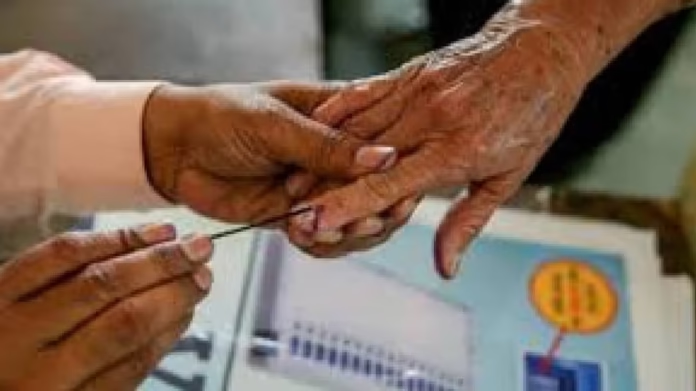The Assam State Election Commission has announced that the Panchayat elections will be held in two phases on May 2 and May 7, with results to be declared on May 11. Chief Election Commissioner Alok Kumar confirmed the schedule during a press conference at the commission’s office in Guwahati’s Panjabari locality. The elections will take place across 27 districts, covering over 1.8 crore eligible voters. Authorities have set up 25,007 polling stations to ensure smooth conduct.
The election process will be closely monitored to prevent any disruptions. Law enforcement agencies will deploy additional personnel in sensitive areas to maintain order. Election officials have assured that security measures will be strengthened, particularly in districts with past records of electoral violence. Kumar emphasized that strict action will be taken against any attempts to disrupt polling.
The campaign period has already begun, with major political parties mobilizing their workers across rural Assam. The ruling party aims to retain control over key local bodies, while opposition parties seek to gain ground by addressing governance and development issues. Leaders have begun touring villages, promising better infrastructure, employment opportunities, and improved public services. The election atmosphere has intensified as candidates hold rallies and door-to-door campaigns to connect with voters.
The administration has implemented measures to ensure transparency. Officials will use electronic voting machines (EVMs) in all polling stations, with additional surveillance through CCTV cameras. The commission has also established a helpline for complaints related to electoral malpractices. Kumar reiterated that free and fair elections remain the top priority. He urged all political parties and candidates to adhere to the model code of conduct, warning against any attempts to manipulate the process.
Voter awareness drives are in full swing. Authorities are working to increase turnout by educating people about their rights and encouraging participation. Election officials are visiting remote areas to ensure that even the most isolated communities can cast their votes. Special arrangements have been made for elderly and differently-abled voters, including transportation services and separate queues at polling stations.
Political observers have noted the significance of these elections in shaping the rural governance landscape. Panchayats play a crucial role in implementing welfare schemes and development projects at the grassroots level. The outcome of this election will influence policies related to agriculture, rural healthcare, education, and employment. Analysts predict a tough contest in several districts where local leaders hold strong influence.
The opposition has focused on issues such as rising prices, unemployment, and alleged lapses in local governance. Leaders have criticized the ruling party’s handling of rural development funds and promised a more people-centric approach if elected. Meanwhile, the government has highlighted its achievements, including improved road connectivity, rural electrification, and social welfare programs. Campaigns have largely centered around these contrasting narratives, with leaders making bold claims to win voters’ trust.
Women’s participation in the elections remains a key focus. The commission has reported an increase in female voter registration, indicating growing political awareness among women in rural Assam. Several women candidates have entered the fray, contesting for key positions in the Panchayats. Activists have welcomed this development, calling it a step toward greater gender representation in local governance.
On the logistical front, election officials have completed most preparations. They have ensured the availability of necessary materials, including EVMs, voter lists, and polling kits. Training sessions for polling officers and security personnel are underway. The commission has coordinated with transport agencies to facilitate the movement of election officials and security forces.
As the polling dates approach, all eyes remain on how the electoral battle unfolds. The elections will not only decide the leadership of local bodies but also serve as an indicator of the political mood in rural Assam ahead of future state-level elections. Voters hold the power to shape governance at the grassroots level, and their participation will determine the direction of development in Assam’s villages.


